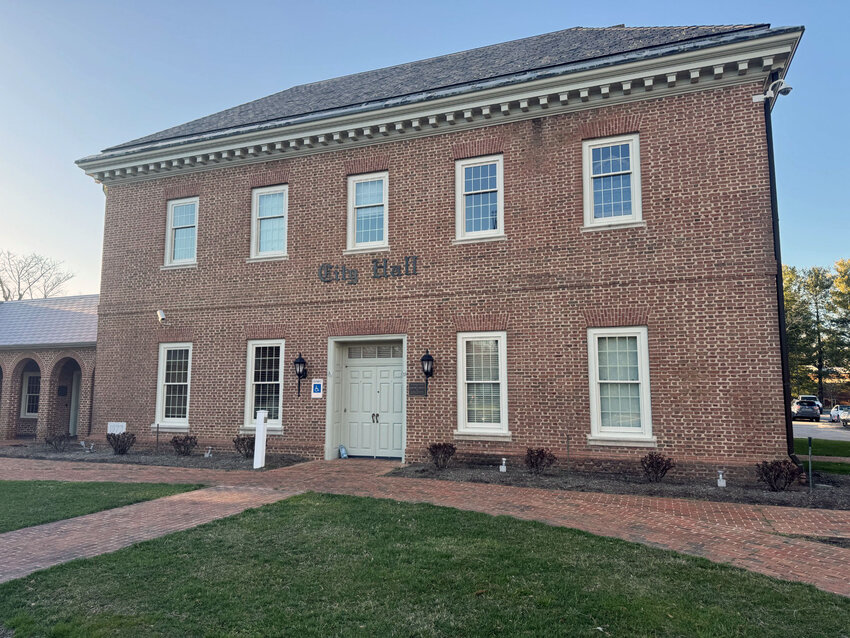Dover council passes several fine-related ordinances
Mayor granted $5,000 raise
Nine ordinances had their final readings by Dover City Council on Monday, and each was approved.
Many of the proposals remove language that requires a doubling of code violation fees two weeks after fines are issued, but the one that garnered the most discussion regarded the fiscal year 2025 budget — more specifically, an amendment deciding the compensation of the mayor.

You must be a member to read this story.
Join our family of readers for as little as $5 per month and support local, unbiased journalism.
Already a member? Log in to continue. Otherwise, follow the link below to join.
Please log in to continue |

Dover council passes several fine-related ordinances
Mayor granted $5,000 raise
DOVER — Nine ordinances had their final readings by City Council on Monday, and each was approved.
Many of the proposals remove language that requires a doubling of code violation fees two weeks after fines are issued, but the one that garnered the most discussion regarded the fiscal year 2025 budget — more specifically, an amendment deciding the compensation of the mayor.
City employees, including council members, are receiving a 4% increase, and that is what was originally budgeted for Mayor Robin R. Christiansen, as well.
But, upon hearing that the mayor’s salary would be $54,080 with a 4% raise, Councilman Roy Sudler spoke up in protest.
“I don’t think that’s enough, in my view. He’s here full time,” he said, “especially with all the decisions and public safety and everything that that job comes with.
“I know we don’t have a job description for the mayor. I know we’re not here every day to see what he does and does not do, but just looking at what mayors do in general and other locations, I think that that’s a little low.”
Councilwoman Tricia Arndt concurred with Councilman Sudler but asked if it was too late in the process to discuss a raise.
To which, city manager Dave Hugg responded that the conversation probably should have been had earlier, but because council must vote on the number, a change could still be made.
That is when Councilman Fred Neil proposed a $5,000 increase.
Councilman Brian Lewis, however, was outspoken against the raise.
“I just have concerns, and I think this is kind of late in the game, with respect to this being included in the budget, because we are in a tight situation. We are in a deficit.
“I mean, personally, you can keep my 4% increment and give it back to the taxpayers,” he said.
The increase was put to a vote, which passed with two voting no, Councilmen Sudler and Lewis. The pair voted the same when it came to approving the budget.
The other eight proposals discussed Monday moved through council more easily.
One helps define how the city will handle code violations, plus notes that infractions will be given when a building project has started or completed without a permit.
The measure reads that violations found during first inspections won’t have any charge and that code officials who find violations will give a timeline for how long individuals have to fix them, often 30 days. Notices will be delivered via mail, email or by hand.
In addition, any violations considered a threat to general welfare or life safety must be corrected within 48 hours.
Failing to schedule a reinspection or not correcting violations will then result in fines.
New language in the ordinance also requires property owners or managers to be present at inspections.
Another ordinance discussed Monday adds a section on grass-cutting fine exemptions for medical reasons. To qualify, the city will require a doctor’s note or some other type of authorized documentation within two weeks of the citation.
Code enforcement officers, fire marshals or other officials must grant or deny the exemption in writing. If an exemption is denied, the fined person has 30 days to appeal.
In addition, Ordinance 2024-19 makes changes to fees. Before, many costs were in the city code as a range, but now, fines and subsequent increases for repeat offenders have clear numbers. The measure also requires unpaid fees to be assessed as a municipal lien against the property.
Another act creates a stormwater utility fund and fees to cover compliance with the National Pollutant Discharge Elimination System. It is meant to ensure that monies for stormwater management stay stable and rely less on the general fund.
The ordinance also establishes a credit system for water quality and runoff rate control.
The final measure codifies service guidelines and requirements for street sweeping and leaf collection.

 By
By 



